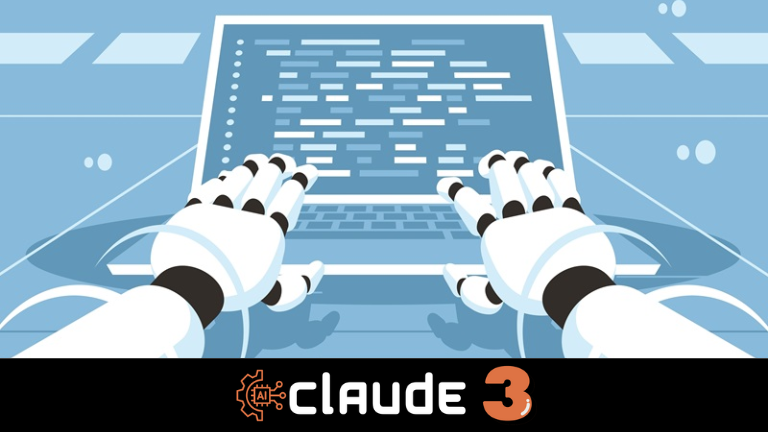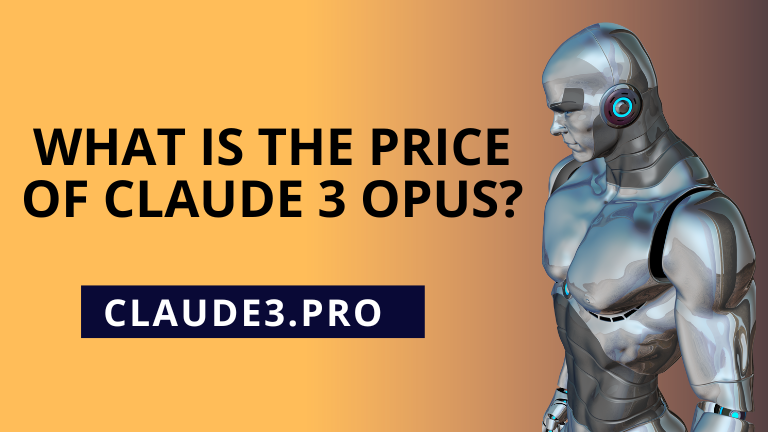What is the Price of Claude 3 Opus? few software suites have garnered as much attention and acclaim as the Claude series from Anthropic. With each iteration, this groundbreaking software has pushed the boundaries of what’s possible in natural language processing, artificial intelligence, and creative expression. Now, with the highly anticipated release of Claude 3 Opus, creators, writers, and artists around the globe are abuzz with excitement and curiosity about its capabilities and, perhaps more importantly, its price point.
This comprehensive guide will delve deep into the world of Claude 3 Opus, exploring its features, functionalities, and the factors that influence its pricing structure. Whether you’re a seasoned professional or a newcomer to the realm of AI-driven content creation, this article will provide you with valuable insights, expert analysis, and a thorough understanding of what this software has to offer and what it might cost to harness its power.
Understanding Claude 3 Opus: A Paradigm Shift in Content Creation
Before we delve into the price of Claude 3 Opus, it’s crucial to appreciate the groundbreaking nature of this software and the seismic shift it represents in the world of content creation.
The Evolution of Natural Language Processing
Natural language processing (NLP) has been a long-standing challenge in the field of artificial intelligence, with researchers and developers striving to create systems that can understand, interpret, and generate human language with accuracy and nuance. Claude 3 Opus represents a significant leap forward in this pursuit, leveraging cutting-edge machine learning algorithms and vast language models to deliver unparalleled performance in tasks ranging from text generation to translation, summarization, and beyond.
AI-Driven Content Creation
One of the most exciting aspects of Claude 3 Opus is its ability to facilitate AI-driven content creation. With its advanced language generation capabilities, the software can assist creators in generating high-quality, coherent, and contextually relevant text on virtually any topic or domain. This not only streamlines the creative process but also opens up new avenues for exploration, experimentation, and collaboration between humans and artificial intelligence.
Pushing the Boundaries of Creativity
Claude 3 Opus is not merely a tool for automating content creation; it’s a catalyst for unlocking new dimensions of creativity and self-expression. By leveraging the software’s ability to analyze and interpret vast amounts of data, creators can gain unique insights, uncover hidden patterns, and explore unconventional perspectives, fueling their artistic and intellectual pursuits in ways that were previously unimaginable.
Exploring the Features and Capabilities of Claude 3 Opus
To truly appreciate the value proposition of Claude 3 Opus and understand the factors that influence its pricing, it’s essential to delve into its rich feature set and capabilities.
Natural Language Generation
At the core of Claude 3 Opus lies its advanced natural language generation engine, which excels in producing human-like text across a wide range of genres, styles, and formats. Whether you’re crafting a captivating novel, composing compelling marketing copy, or generating insightful research papers, Claude 3 Opus can be a powerful ally, providing intelligent suggestions, contextual prompts, and seamless integration with your existing workflow.
Language Translation and Localization
In today’s interconnected world, the ability to communicate across linguistic barriers is paramount. Claude 3 Opus addresses this need with its state-of-the-art language translation and localization features. With support for multiple languages and the ability to accurately capture nuances, idioms, and cultural contexts, the software empowers creators to reach global audiences and disseminate their work on a truly international scale.
Content Summarization and Analysis
For researchers, journalists, and anyone dealing with vast amounts of textual data, Claude 3 Opus offers powerful content summarization and analysis capabilities. By leveraging advanced natural language processing techniques, the software can quickly distill complex documents, articles, or reports into concise summaries, highlighting key points and extracting valuable insights. This feature alone can save countless hours of manual effort and enhance productivity exponentially.
Creative Writing Assistance
Writers and storytellers will find Claude 3 Opus to be an invaluable companion in their creative endeavors. With its ability to generate dynamic plot lines, develop rich character narratives, and even suggest evocative descriptive passages, the software can ignite new sparks of inspiration and help overcome writer’s block. Additionally, its built-in editing and proofreading tools can ensure that your work maintains a high level of polish and grammatical accuracy.
Intellectual Property Protection
In an age where intellectual property rights are of paramount importance, Anthropic has implemented robust safeguards within Claude 3 Opus to protect the work of its users. Advanced plagiarism detection mechanisms, content attribution tools, and secure collaboration features ensure that your original creations remain safeguarded from unauthorized use or infringement.
Integration and Customization
While Claude 3 Opus is a powerful standalone solution, its true potential is unlocked through seamless integration with existing workflows and tools. The software offers a wide range of APIs and plugins, allowing creators to incorporate its capabilities into their preferred environments, whether it’s a word processor, a content management system, or a specialized creative suite. Additionally, Anthropic provides extensive customization options, enabling users to tailor the software’s behavior and output to align with their specific needs and preferences.
Factors Influencing the Pricing of Claude 3 Opus
With such a comprehensive feature set and groundbreaking capabilities, it’s natural to wonder about the pricing structure of Claude 3 Opus. However, determining the cost of this software is not a straightforward task, as numerous factors come into play.
Development and Research Costs
The development of Claude 3 Opus represents years of intensive research, experimentation, and investment by the Anthropic team. The cutting-edge natural language processing algorithms, vast language models, and advanced machine learning techniques that power the software require significant computational resources, data processing, and ongoing optimization. These substantial development and research costs are likely to be reflected in the pricing of the software.
Computing Power and Infrastructure Requirements
Claude 3 Opus is a resource-intensive application, demanding substantial computing power and robust infrastructure to deliver its advanced capabilities. From high-performance GPUs and specialized hardware accelerators to scalable cloud computing resources, the software’s requirements necessitate significant investments in hardware and infrastructure. These costs, coupled with ongoing maintenance and upgrades, contribute to the overall pricing structure.
Licensing and Subscription Models
Like many modern software solutions, Claude 3 Opus may be offered through various licensing and subscription models. These models can range from perpetual licenses with upfront costs to recurring subscription plans that provide access to regular updates, new features, and ongoing support. The specific pricing will likely depend on the chosen model, with factors such as the number of users, usage duration, and additional service requirements playing a role in determining the final cost.
Enterprise and Commercial Offerings
While individual creators and hobbyists may constitute a significant portion of the user base, Anthropic is also likely to target enterprise and commercial clients with specialized offerings tailored to their unique needs. These offerings may include enhanced security features, dedicated support channels, custom integrations, and specialized training or consulting services. The pricing for such enterprise-level solutions is typically higher due to the additional resources and customization required.
Competitive Landscape and Market Positioning
As with any software product, the pricing of Claude 3 Opus will be influenced by the competitive landscape and Anthropic’s positioning within the market. The company will need to strike a balance between offering a compelling value proposition while remaining competitive with alternative solutions and industry standards. Additionally, the software’s perceived value, brand reputation, and unique selling points will play a role in determining its pricing strategy.
Pricing Strategies and Business Models
Ultimately, the price of Claude 3 Opus will be shaped by Anthropic’s overall pricing strategies and business models. The company may opt for a premium pricing approach, positioning the software as a high-end, feature-rich solution for professionals and enterprises. Alternatively, they could pursue a more accessible pricing model, aiming to attract a wider user base and potentially generate revenue through complementary services or add-ons. The chosen strategy will depend on Anthropic’s long-term goals, market positioning, and target audience segments.
Expert Analysis and Industry Perspectives
To gain a well-rounded understanding of the potential pricing for Claude 3 Opus, it’s essential to consult with industry experts, analysts, and seasoned professionals in the field of content creation and natural language processing.
Insights from Content Creation Professionals
Content creators, writers, and artists who have experienced the power of previous versions of Claude offer invaluable insights into the software’s value proposition and its potential impact on their workflows and creative processes. Their perspectives on features, usability, and perceived return on investment can shed light on the pricing expectations and willingness to invest in a tool like Claude 3 Opus.

FAQs
Q: How much does Claude 3 Opus cost?
Claude 3 Opus uses a tiered pricing structure based on tokens. There are separate charges for input tokens (what you feed the model) and output tokens (the response it generates).
Q: What is the specific price per token?
A: Pricing varies depending on the provider, but Anthropic, the developer, charges $15 per 1 million input tokens and $75 per 1 million output tokens.
Q: Is there a way to estimate the cost of using Claude 3 Opus?
Yes, some websites offer calculators. For example, sending a request with 1,000 words (roughly 15,000 tokens) could cost around $7.80 for the response, considering Anthropic’s pricing.
Q: Are there any free trials or discounts available for Claude 3 Opus?
Availability depends on the provider. It’s recommended to check with the specific platform you plan to use.
Q: Is Claude 3 Opus the most expensive large language model?
No, there are other models with varying pricing structures. Claude 3 Opus falls on the higher end due to its advanced capabilities.
